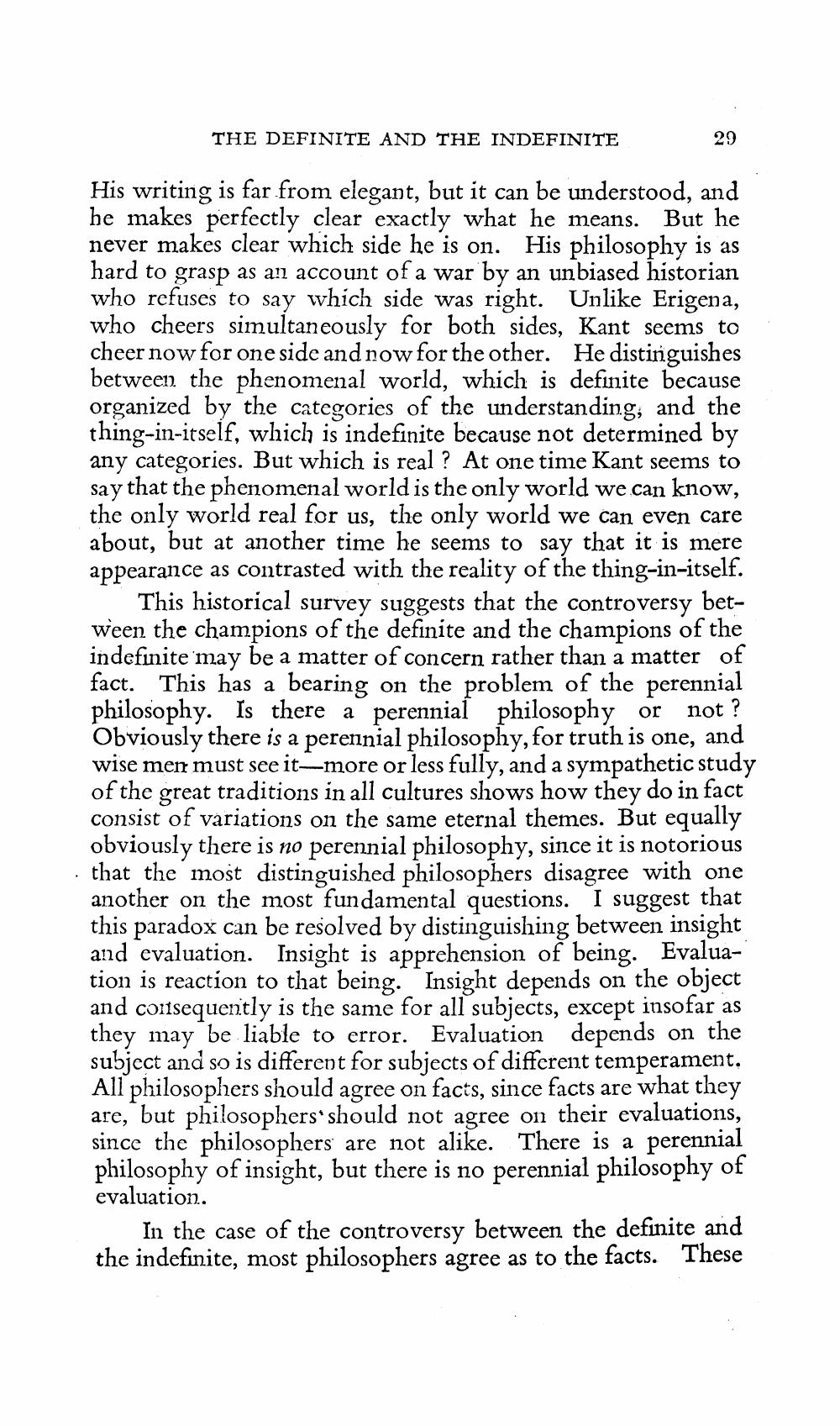Book Title: Definite And Indefinite Author(s): George Burch Publisher: George Burch View full book textPage 5
________________ THE DEFINITE AND THE INDEFINITE 29 His writing is far from elegant, but it can be understood, and he makes perfectly clear exactly what he means. But he never makes clear which side he is on. His philosophy is as hard to grasp as an account of a war by an unbiased historian who refuses to say which side was right. Unlike Erigena, who cheers simultaneously for both sides, Kant seems to cheer now for one side and now for the other. He distinguishes between the phenomenal world, which is definite because organized by the categories of the understanding; and the thing-in-itself, which is indefinite because not determined by any categories. But which is real ? At one time Kant seems to say that the phenomenal world is the only world we can know, the only world real for us, the only world we can even care about, but at another time he seems to say that it is mere appearance as contrasted with the reality of the thing-in-itself. This historical survey suggests that the controversy between the champions of the definite and the champions of the indefinite may be a matter of concern rather than a matter of fact. This has a bearing on the problem of the perennial philosophy. Is there a perennial philosophy or not? Obviously there is a perennial philosophy, for truth is one, and wise men must see it—more or less fully, and a sympathetic study of the great traditions in all cultures shows how they do in fact consist of variations on the same eternal themes. But equally obviously there is no perennial philosophy, since it is notorious · that the most distinguished philosophers disagree with one another on the most fundamental questions. I suggest that this paradox can be resolved by distinguishing between insight and evaluation. Insight is apprehension of being. Evaluation is reaction to that being. Insight depends on the object and coitsequently is the same for all subjects, except insofar as they may be liable to error. Evaluation depends on the subject and so is different for subjects of different temperament, All philosophers should agree on facts, since facts are what they are, but philosophers should not agree on their evaluations, since the philosophers are not alike. There is a perennial philosophy of insight, but there is no perennial philosophy of evaluation. In the case of the controversy between the definite and the indefinite, most philosophers agree as to the facts. ThesePage Navigation
1 ... 3 4 5 6 7 8 9 10 11 12
